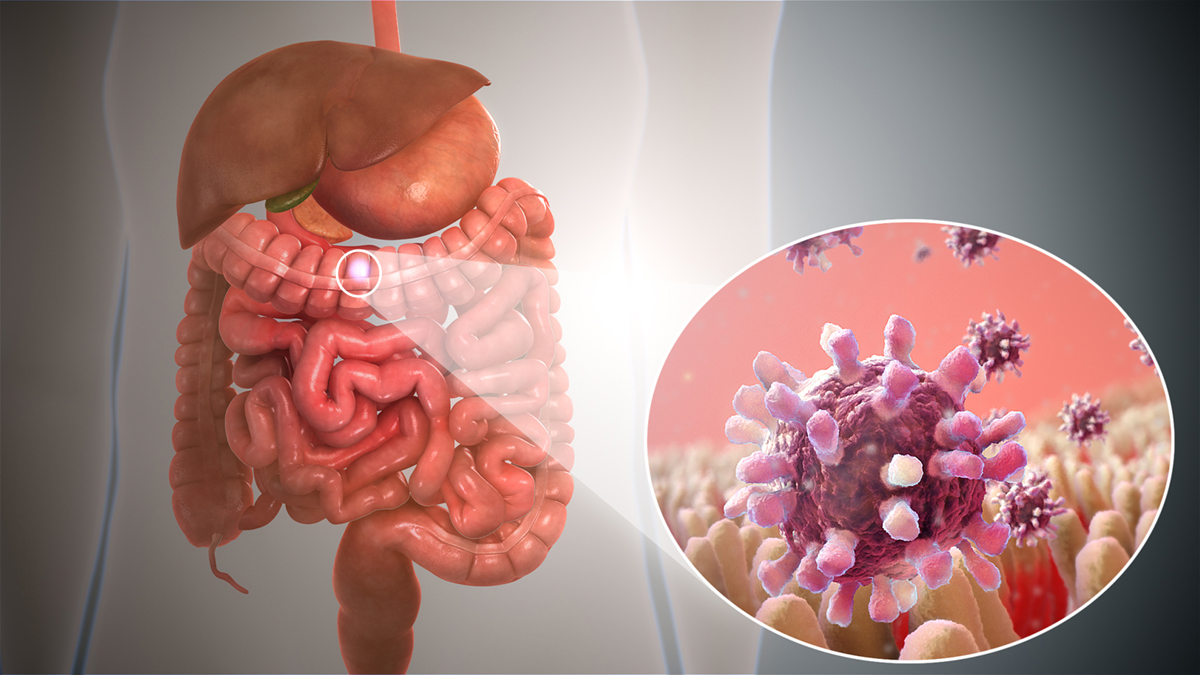
Gastroenteritis is an inflammation of the gastrointestinal tract. It is also known as stomach flu. Gastroenteritis is quite common condition which usually does not last long. It typically features with low-grade fever nausea, vomiting, cramps and diarrhea. Medical attention is not required in majority of patients and the symptoms withdraw on their own. However, gastroenteritis in infants, young children and elderly people may be much more serious and it usually requires consultation with a doctor and suitable treatment. In these patients there is a risk of dehydration and several more complications.
Gastroenteritis may be caused by a variety of infective agents including viruses, bacteria and parasites. Viral gastroenteritis is an infection spread via the fecal-oral route and bacterial gastroenteritis typically occurs due to consumption of food that contains bacteria or their toxins. The very disease usually occurs in epidemics and isolated cases are not so frequent.
Causes of Gastroenteritis
As it has already been mentioned viruses, bacteria and parasites are three culprits of gastroenteritis. Still, the disease is most commonly caused by viruses and bacteria. A variety of viruses may be involved in process of gastrointestinal inflammation. Adenovirus, rotavirus, Norwalk virus and astrovirus are only some of them. In children gastroenteritis is usually caused by rotavirus and adenovirus. Norwalk virus and astrovirus affect people of all age. The infective agents enter the gastrointestinal tract via contaminated food or water.
Symptoms of Gastroenteritis
The leading symptoms of gastroenteritis are vomiting and diarrhea. Apart from them a patient may complain about fever, nausea, abdominal cramps and headache. In severe form of the disease there may be blood in the stool.
Dehydration in a form of dry skin and visible mucus membranes occurs only in severe case of gastroenteritis and is a consequence of prolonged vomiting and diarrhea as well as insufficient intake of fluids.
Treatment for Gastroenteritis
The basic concept of treatment for gastroenteritis is intake of plenty of fluids. Proper hydration is achieved by fluids that are taken in regular intervals. In case of mild gastroenteritis a person may stay at home and drink as much liquid as he/ she can. On the other hand, if intake of fluids in simply not possible due to persistent vomiting and diarrhea one may become severely dehydrated. This requires intravenous administration of fluids.
In some cases samples or urine, blood and stool are taken and tested form the presence of infective agents. In case gastroenteritis is caused by bacteria patients are sometimes prescribed antibiotics. Once the symptoms of gastroenteritis are brought under control a patients is advised to continue with light diet and gradual introduction of all the foods in a diet.





_f_280x120.jpg)











Your thoughts on this
Loading...